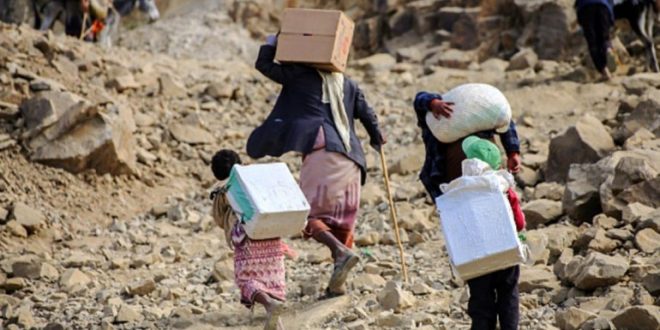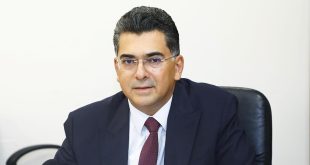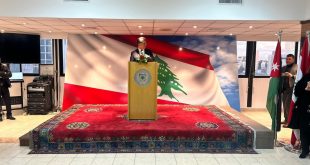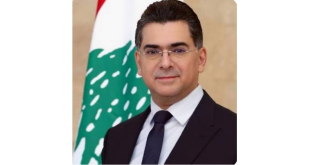GENEVA — The United Nations’ top human rights official accused Myanmar on Monday of carrying out “a textbook example of ethnic cleansing” against Rohingya Muslims, hundreds of thousands of whom have crossed into Bangladesh since late August to escape a military crackdown.
Zeid Ra’ad al-Hussein, the United Nations high commissioner for human rights, said the military’s “brutal” security campaign was in clear violation of international law, and cited what he called refugees’ consistent accounts of widespread extrajudicial killings, rape and other atrocities.
Mr. al-Hussein said the crackdown “resembles a cynical ploy to forcibly transfer large numbers of people without possibility of return,” noting that Myanmar had progressively stripped its Rohingya minority of civil and political rights for decades.
“The situation seems a textbook example of ethnic cleansing,” he said in a keynote address before the United Nations Human Rights Council in Geneva.
More than 300,000 Rohingya have fled to Bangladesh since Aug. 25, when armed Rohingya militants attacked police posts and a military base in the western state of Rakhine, which borders Bangladesh. The Myanmar authorities said 15 members of the security forces and 370 militants had been killed in the fighting.
Since then, Rohingya refugees arriving in Bangladesh have told journalists, rights groups and others that soldiers, along with some local residents, had set fire to numerous villages and had butchered Rohingya men, women and children.
Some officials in Myanmar have said that Rohingya had set fire to their own homes and villages. On Monday, Mr. al-Hussein called such accusations a “complete denial of reality” that was damaging the international standing of a leadership that had benefited from considerable good will as the country emerged from decades of military rule.
Mr. al-Hussein’s comments added to mounting international criticism of the military’s actions in Rakhine. Some of it has singled out Daw Aung San Suu Kyi, the de facto leader of the elected civilian government, who was awarded the Nobel Peace Prize in 1991 for her resistance to the military dictatorship. Ms. Aung San Suu Kyi does not control Myanmar’s military, but she has yet to criticize its crackdown on the Rohingya.
On Friday, the Dalai Lama became the latest Nobel Peace Prize laureate to raise the issue of her silence, following statements from Bishop Desmond Tutu of South Africa and the rights advocate Malala Yousafzai of Pakistan, both of whom called on Ms. Aung San Suu Kyi to take action.
The Dalai Lama told journalists in Dharamsala, India, that those who were persecuting Rohingya “should remember Buddha,” a pointed reminder to the Buddhists who make up a majority of Myanmar’s population. Some Buddhist nationalists in Myanmar have campaigned for Muslims to be driven out of the country.
The Buddha “would definitely give help to those poor Muslims,” the Dalai Lama said.
On Sunday, leaders who had gathered in Astana, Kazakhstan, for a meeting of the Organization of Islamic Cooperation issued a statement condemning the “systematic brutal acts” against the Rohingya and asked Myanmar to allow a United Nations fact-finding mission into the country to investigate.
That mission was established after an earlier crackdown in Rakhine, in October, also in response to a coordinated attack on security forces by Rohingya militants. Myanmar’s government has refused to cooperate with the mission and has said it will not allow members of the group into the country. The mission is scheduled to report to the United Nations rights council this month.
The Organization of Islamic Cooperation is currently led by President Recep Tayyip Erdogan of Turkey. His wife, Ermine Erdogan, traveled to Bangladesh with a consignment of humanitarian aid last week, urging the government in Dhaka to keep its borders open for Rohingya refugees.
The militant group blamed for the August attacks, the Arakan Rohingya Salvation Army, declared a unilateral, one-month ceasefire on Sunday, citing the need to allow the delivery of humanitarian aid and urging
Myanmar’s military to lay down its arms. The government refused, saying it would not negotiate with terrorists.
In his address on Monday, Mr. al-Hussein said he was appalled by reports that Myanmar’s military has placed mines along the border with Bangladesh. Amnesty International said on Sunday that it had documented “what seems to be targeted use of land mines” by Myanmar’s security forces at crossing points used by refugees.
The rights group said that one civilian near the border had been killed and that three people, including two children, had been seriously injured by mines in the past week.
“This is another low in what is already a horrific situation in Rakhine,” said Tirana Hassan, Amnesty’s crisis response director.
 Lebanese Ministry of Information
Lebanese Ministry of Information



